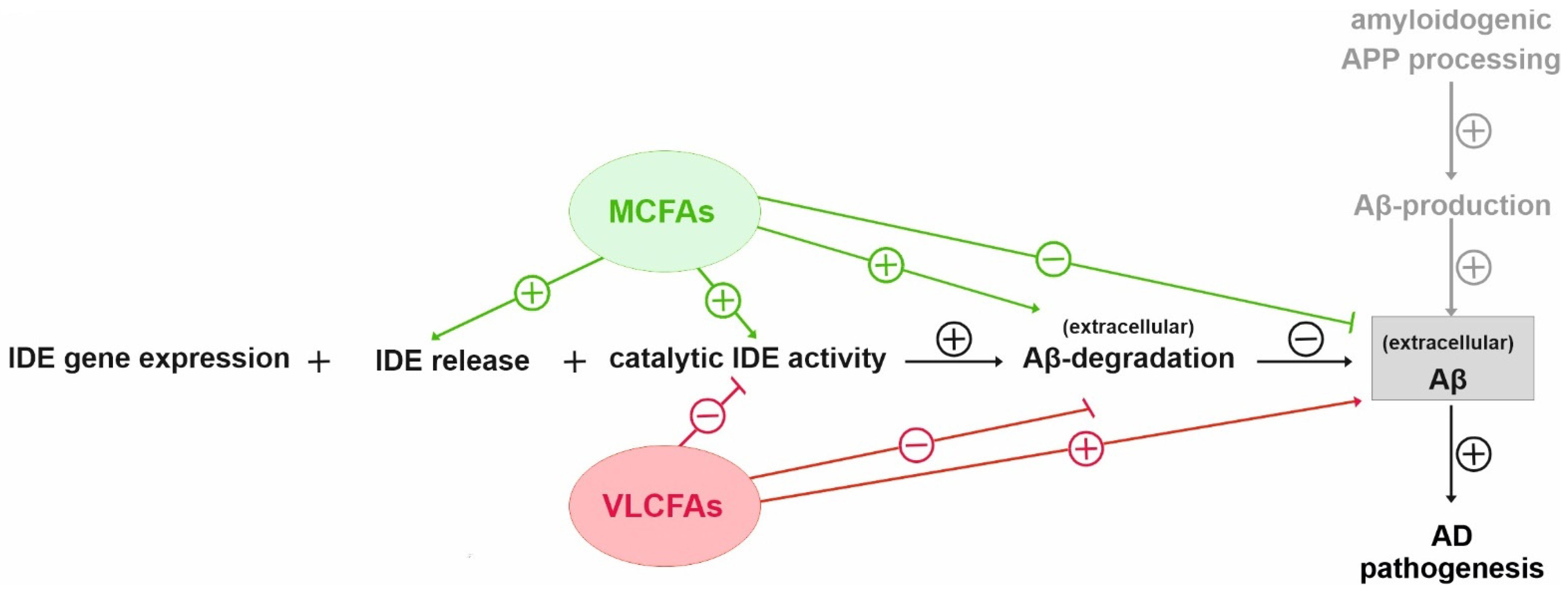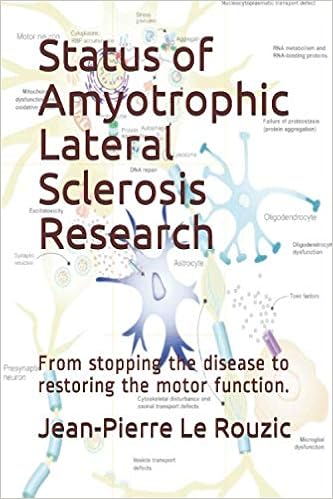The accumulation of amyloid -protein is one of the major pathological hallmarks of Alzheimer's disease. Insulin-degrading enzyme, a zinc-metalloprotease, is a key enzyme involved in amyloid β-protein degradation, which, in addition to amyloid β production, is critical for amyloid β homeostasis.
 Here, authors from Germany and Finland demonstrate that saturated medium-chain fatty acids increase total amyloid β- degradation whereas longer saturated fatty acids result in an inhibition of its degradation, an effect which could not be detected in insulin-degrading enzyme knock-down cells.
Here, authors from Germany and Finland demonstrate that saturated medium-chain fatty acids increase total amyloid β- degradation whereas longer saturated fatty acids result in an inhibition of its degradation, an effect which could not be detected in insulin-degrading enzyme knock-down cells.
Further analysis of the underlying molecular mechanism revealed that medium-chain fatty acids result in an increased exosomal insulin-degrading enzyme secretion, leading to an elevated extracellular and a decreased intracellular insulin-degrading enzyme level whereas gene expression of Insulin-degrading enzyme was unaffected in dependence of the chain length.
Additionally, medium-chain fatty acids directly elevated the enzyme activity of recombinant Insulin-degrading enzyme, while longer-chain length fatty acids resulted in an inhibited insulin-degrading enzyme activity.
The effect of medium-chain fatty acids on Insulin-degrading enzyme activity could be confirmed in mice fed with a medium-chain fatty acids-enriched diet, revealing an increased Insulin-degrading enzyme activity in serum.
Medium-chain triglycerides are generally considered a good biologically inert source of energy that the human body finds reasonably easy to metabolize. They have potentially beneficial attributes in protein metabolism, but may be contraindicated in some situations due to a reported tendency to induce ketogenesis and metabolic acidosis.
The authors' conclusion is that not only polyunsaturated fatty acids such as docosahexaenoic acid, but also short-chain fatty acids, highly enriched, for example in coconut oil, might be beneficial in preventing or treating Alzheimer's disease.

